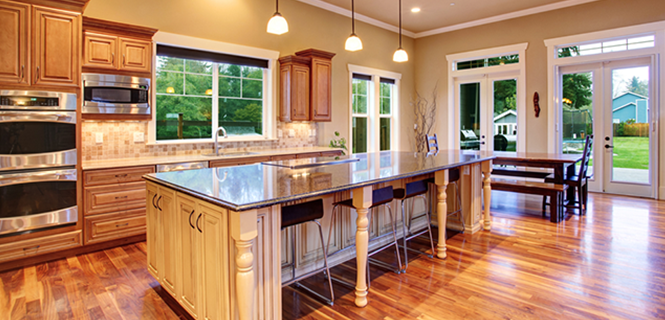Major home improvement projects will test even the most seasoned homeowners. From underestimated budgets to project delays and unexpected add-ons, there are a number of challenges to overcome in ensuring a successful outcome. But there’s one challenge that supersedes all: Hiring the right contractor. This list of hiring do’s and don’ts will help you find a trusted, qualified professional for all of your home projects.
Find Top-Rated Pros
Search Now1. Don’t hire the first person you talk to. Do get estimates from multiple pros.
Hiring the first pro you talk to gives you no comparison when it comes to pricing, professionalism and project details. But not all homeowners take the time to talk to multiple pros before they make a hiring decision. Experts recommend interviewing at least three pros before you hire for your home projects.
2. Don’t hire the cheapest pro. Do hire the pro you’re most confident hiring.
Hiring the pro with the lowest quote is a common mistake, as the cheapest pro is sometimes the most likely to experience project delays and go over budget. Experts suggest splitting the difference and going with the pro with the median price. Above all else, it’s important to invest in the pro you feel most comfortable working with. And if the pro with the lowest bid has the best credentials, impeccable references and a stellar portfolio, there’s no reason not to make the hire.
3. Don’t take their word for it. Do ask for proof of insurance, licensure and bonding.
If you read any hiring how-to guide, you’ll learn that you should hire only a licensed, insured and bonded pro to work on your home projects. And yet, homeowners frequently ignore this advice. Be sure to ask for written proof of insurance and licensing before hiring a pro. This is among the best ways to ensure you’re hiring a qualified, trustworthy contractor.
4. Don’t shake on it. Do get it in writing.
Nothing is set in stone unless you have a contract in writing. Take detailed notes of the agreed-upon items in your contract. Carefully review each detail of your contract with your pro to make sure everything is clearly documented and mutually understood. Be sure to include items such as start and completion dates, payment terms, procedures for change orders, and a detailed outline of specified costs and materials. If your pro hesitates to sign an agreed-upon contract, it’s probably best to find a new contractor.
5. Don’t pay up front. Do pay according to a milestone schedule.
If your pro asks for your entire payment up front, start looking for a new contractor. In fact, a good contractor should be willing to work with homeowners to establish payment schedules as certain milestones are met on the job. For example, you could offer a concrete contractor three equal payments: one for the delivery of materials, another when the concrete is poured and a final payment once the concrete has cured and you’re satisfied with its appearance and performance. As a rule, never pay more than one-third of home project costs up front.



 10 Questions to
10 Questions to How to Choose a Quality
How to Choose a Quality 6 Steps to
6 Steps to 7 Mistakes to Avoid
7 Mistakes to Avoid